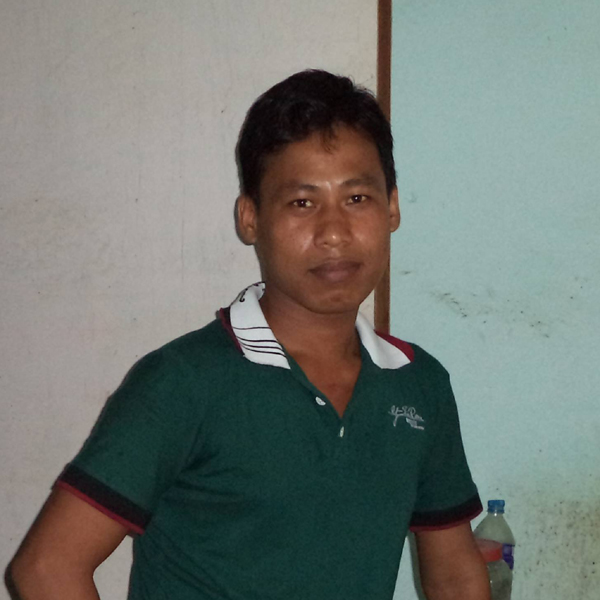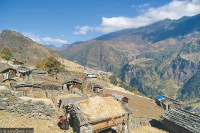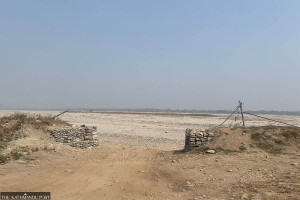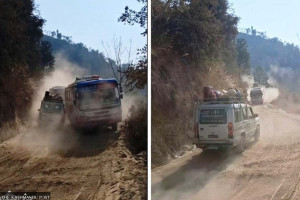Koshi Province
Shortage of funds pegging back community schools in Jhapa
Education experts say the lack of funding prevented the schools from running education reform programmes.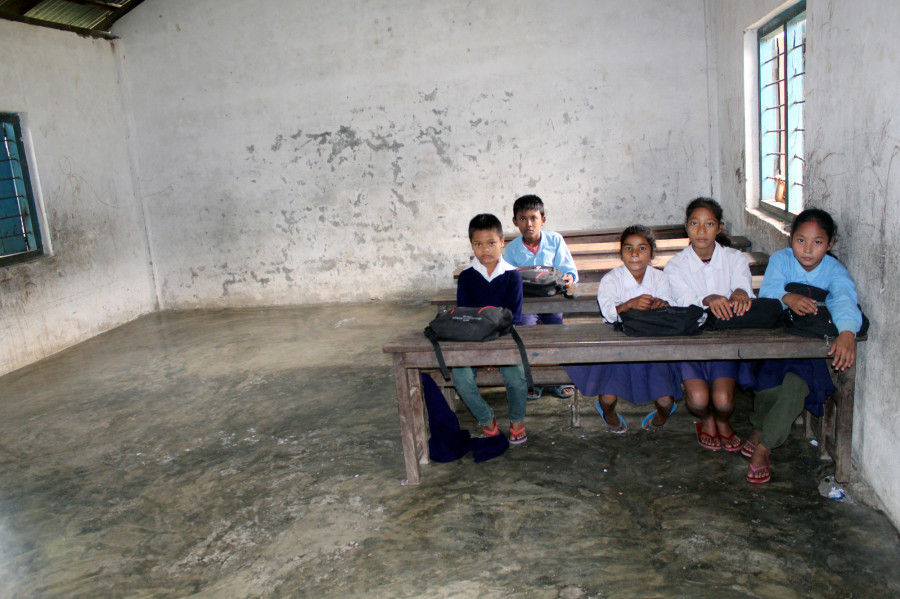
Arjun Rajbanshi
Jharana Basic School in Shivasatakshi Municipality, Jhapa has been closed for the past two years. Lack of students and poor-quality education were cited as the main reason for the school’s closure.
Satasi Basic School in Shivasatakshi is also on the verge of shutting down because of the low number of students. The school will be closed by the next academic year if it fails to increase the number of students. Likewise, Satasi School, Kankai, Shreejangha and Arunodaya Basic Schools are facing a similar fate.
There are 365 community schools in Jhapa and most them are performing poorly in terms of the quality of education and headcounts, said Uddhav Bista, an under-secretary, who has been working in the education sector for a long time in the district.
Ganesh Ghimire, the headmaster of Saraswati Basic School, blamed the lack of funds for their underperformance, claiming that none of the schools had been given sufficient budget to run education reform programmes.
“We have been demanding for more budget from the local unit to enhance the quality of education, but our request hasn’t been taken into consideration,” he said. “If this continues, most of the community schools will have to be shut down due to lack of students and proper infrastructure.”
Shivasatakshi Municipality has been allocated a budget of Rs875.4 million for this fiscal year and the people’s representatives have set aside an additional Rs177.5 million under infrastructure development.
In comparison, the municipality has allocated a mere Rs12 million for the community schools. The school management committees had requested for Rs24 million to run 35 community schools in the municipality.
According to Surendra Dahal, chief at the Education Section, there are 9,701 students in the municipality. “The number of students attending community school is quite significant but the schools don’t have the resources to manage quality education for these students. Therefore, most students have dropped out of these schools to join private ones,” he said.
Asked about the inefficiency and underperformance of the community schools, the school management committees lamented insufficient budget to run educational reform programmes, said Dahal.
Some community schools in the district do not even have the required infrastructure, said Khadga Prasad Kharel, chief at the Education Section. The students of Mahendra Basic School, for instance, have temporary huts for classrooms. “Leaking roof is a big problem for the students during the rainy season here,” said Kharel. Highlighting the sorry state of the school, he said that the school does not even have basic facilities like clean toilets and running water.
Bhairab Prasad Paudel, a former teacher of Arjundhara Municipality, said that most of the people’s representatives have allocated budget for the construction of roads, culverts, bridges and among other development activities and in the process have failed to prioritise the education sector.
“The education sector has been fallen behind as most of the representatives are busy in development of physical infrastructure. They don’t value the importance of education and what crucial role education plays in the overall development of the country,” said Paudel.
Education experts believe that the guardians and other concerned stakeholders too should be active participants in seeking for the well-being of the education system in the district. “The voters should also pressure the local units to prioritise the education sector. They should be encouraged to invest in this sector for it will have a long-term effect,” said Bista.
Jeewan Kumar Shrestha, mayor of Bhadrapur Municipality, however, denied the allegations that the municipality had ignored the education sector in the district. “Though we have allocated limited budget to the education unit of the municipality, we have invested millions for the development of school infrastructure and education reform programmes,” said Shrestha.
According to him, most of the people’s representatives during the time of the last local elections had charted a plan wherein they would focus on physical infrastructure development for the first three years and would dedicate the next two years on social development programmes.




 9.83°C Kathmandu
9.83°C Kathmandu